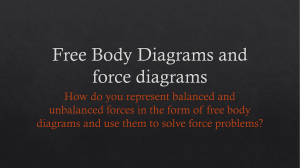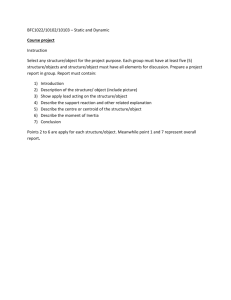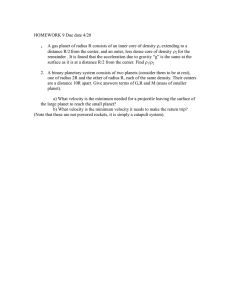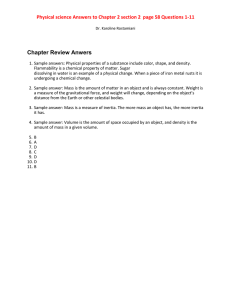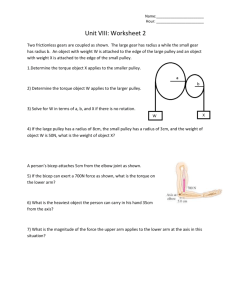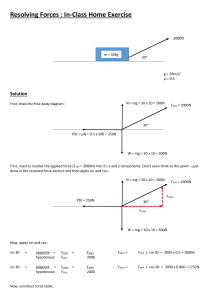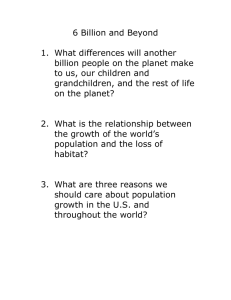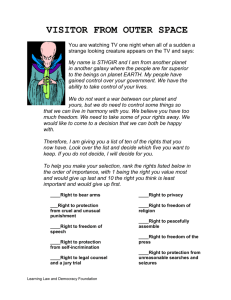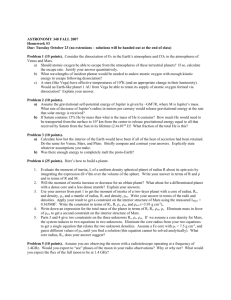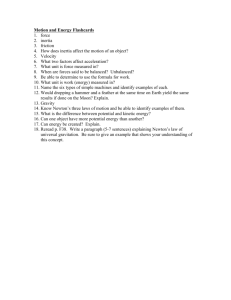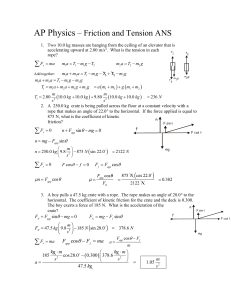Solutions to 10-19 10. a) Use Newton’s 2
advertisement
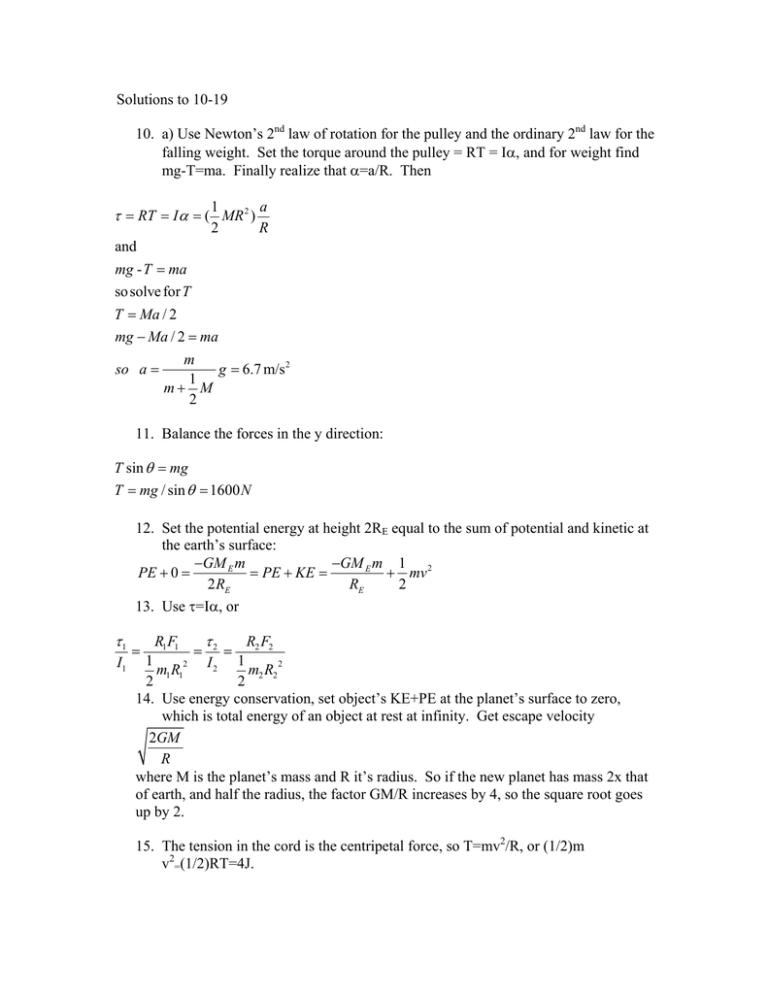
Solutions to 10-19 10. a) Use Newton’s 2nd law of rotation for the pulley and the ordinary 2nd law for the falling weight. Set the torque around the pulley = RT = Iand for weight find mg-T=ma. Finally realize that =a/R. Then 1 2 RT I ( MR 2 ) a R and mg - T ma so solve for T T Ma / 2 mg Ma / 2 ma m so a g 6.7 m/s 2 1 m M 2 11. Balance the forces in the y direction: T sin mg T mg / sin 1600 N 12. Set the potential energy at height 2RE equal to the sum of potential and kinetic at the earth’s surface: GM E m GM E m 1 2 PE 0 PE KE mv 2 RE RE 2 13. Use =Ior 1 I1 R1 F1 2 R2 F2 1 2 I2 1 m R 2 m1 R1 2 2 2 2 14. Use energy conservation, set object’s KE+PE at the planet’s surface to zero, which is total energy of an object at rest at infinity. Get escape velocity 2GM R where M is the planet’s mass and R it’s radius. So if the new planet has mass 2x that of earth, and half the radius, the factor GM/R increases by 4, so the square root goes up by 2. 15. The tension in the cord is the centripetal force, so T=mv2/R, or (1/2)m v2=(1/2)RT=4J. 16. Work is nothing more than the force times the distance travelled, if the displacement is in the same direction as the force, which is constant. These conditions are fulfilled here, so W=F (2R) =3(2 2.5)=1547J. 17. The angle swept out as a function of time is 1 2 1 450 209 (9) 2 2 So =6.7 rad/s2 0 0 t t 2 18. The torque on the wheel provided by Fapp around the contact point is a RFapp I I , R Where =a/R is the condition for rolling without slipping. We can solve for I, the moment of inertia around the contact point: I Fapp R 2 / a but recall that we are asked for the moment of inertia around the center of mass, Icm . This is related to the moment of inertia I around the contact point by the parallel axis theorem, I I cm MR 2 Fapp R 2 / a so I cm Fapp R 2 / a MR 2 10 5 5 kg m 2 19. Problem 19 dealt with Kepler’s law and was not counted because this topic was absent from the list of syllabus topics. Full credit was given to all students.
